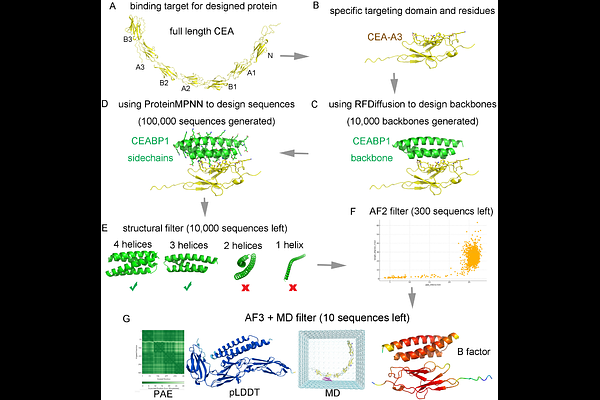Targeted inhibition of colorectal carcinoma using a designed CEA-binding protein to deliver TCF/LEF transcription factor decoy DNA and p53 protein

Targeted inhibition of colorectal carcinoma using a designed CEA-binding protein to deliver TCF/LEF transcription factor decoy DNA and p53 protein
Wang, W.; Sun, X.; Wu, G.
AbstractColorectal carcinoma (CRC) is characterized by mutations in Wnt signaling pathway components and the p53 protein, and anti-PD-1/anti-PD-L1 immunotherapy has shown limited efficacy in microsatellite stable CRC patients. In this work, CEABP1, a de novo-designed binding protein for the CRC marker carcinoembryonic antigen (CEA), and cell-penetrating peptide (CPP) were employed for targeted delivery in CRC cells. The consensus binding motifs for TCF/LEF and Max were concatenated, and Max DNA binding domain protein fused with CPP and CEABP1 was used to deliver this TCF/LEF transcription factor decoy (TFD) DNA specifically into CRC cells by recognizing CEA on the CRC cell surface to inhibit Wnt target gene transcription, leading to marked suppression of CRC cell proliferation and xenograft tumor growth. In addition, p28 was employed as a CPP to specifically deliver the p28-p53-CEABP1 protein into CRC cells, which significantly enhanced p53 inhibition of CRC cell proliferation and xenograft tumor growth. Furthermore, codelivery of the p14ARF protein together with p53 increased its antitumor activity by prolonging its effective duration. These findings paved the way for the development of related biomacromolecular anticancer therapeutics.